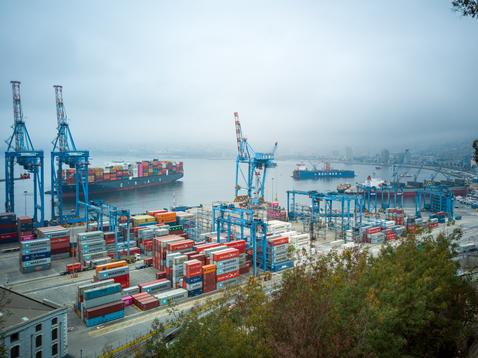This is the climate decade and businesses of all shapes and sizes are making significant progress to reduce their direct Scope 1 and 2 emissions – last year RE100 companies reported sourcing 49% of their electricity from renewables. However, those Scope 3 emissions a company is not directly responsible for are increasingly coming under the spotlight, due to the outsized role the supply chain has in any company’s sustainability goals.
Supply chain emissions are over 11 times higher than operational emissions, on average. This is over 90% of an organisation’s greenhouse gas emissions, meaning the decarbonisation opportunities are huge, but complex. The opportunities to cut emissions are huge, but complex due to the limited transparency of supply chain emissions.
The most effective approach to increasing the uptake of renewable electricity in supply chains can vary. Location, number of sites, and supply chain complexity, amongst others, all come into play, as well as the specific market context in which these businesses operate.
Collaboration is the key to success in this relatively new area of work. Providing a space for knowledge sharing and peer learning can be invaluable, especially to those businesses within the supply chain that are smaller and don’t necessarily have the capacity, or in-house knowledge to move towards 100% renewable electricity on their own.
But there’s more that must be considered to help make the process easier for all buyers who get on this journey. After two years of research and direct conversations with RE100 members we’ve found some common patterns emerging no matter the company’s supply chains programme model.
Key success drivers:
There are three key factors for companies to understand and address:
- The impact of energy policies and the value of partnerships is crucial. Working closely with national governments, as well as with the local electricity providers, among other stakeholders, can help bring renewables to challenging markets.
- The engagement with financial investors to provide support, especially for SMEs, can help businesses looking to make sustainable change. Further to this, clean energy investments and the transition to renewable electricity at scale needs to make financial sense for suppliers.
- Suppliers’ concerns around increased costs of renewable electricity in certain countries needs to be addressed early on. What’s more, it takes time for suppliers to understand, invest and start seeing results, but – again – a willingness to advocate for better renewables policies in countries can help to speed up this process.
Major barriers:
- In certain regions, limited commercially viable renewable electricity options exist, and often policy and regulatory mechanisms do not enable suppliers to procure renewables from the grid or through onsite means. Domestic suppliers are often too small or lack the in-house capacity to conduct policy advocacy. Similarly, large buyers in those countries struggle to do policy advocacy on their own/unilaterally on behalf of their suppliers.
- A lack of transparency in data and insights in the first instance can make assessing the supply chain and engaging with suppliers difficult. External market data in a country is also important for implementing change and understanding the landscape.
- Many suppliers operate on tight margins and limited balance sheets, and short-term competitiveness is a challenge. Renewable energy can be affordable in a country, but due to subsidies fossil fuels often remain the dominant source of energy. Preferential, low-cost, third-party capital is needed, as well as simplified ways to access it.
RE100 companies support the RE100 Global Policy Messages which show what constitutes a healthy renewable electricity market, ready for buyers and suppliers alike to reap the benefits of cheap renewable electricity. Changing energy policy in markets that struggle to provide cheap renewable electricity to all is the most effective way to help supply chains to accelerate their transition to renewables globally.
Find out how RE100 members have looked to decarbonise their supply chains. Read the case studies together with other resources as part of the Suppliers Engagement guide.
